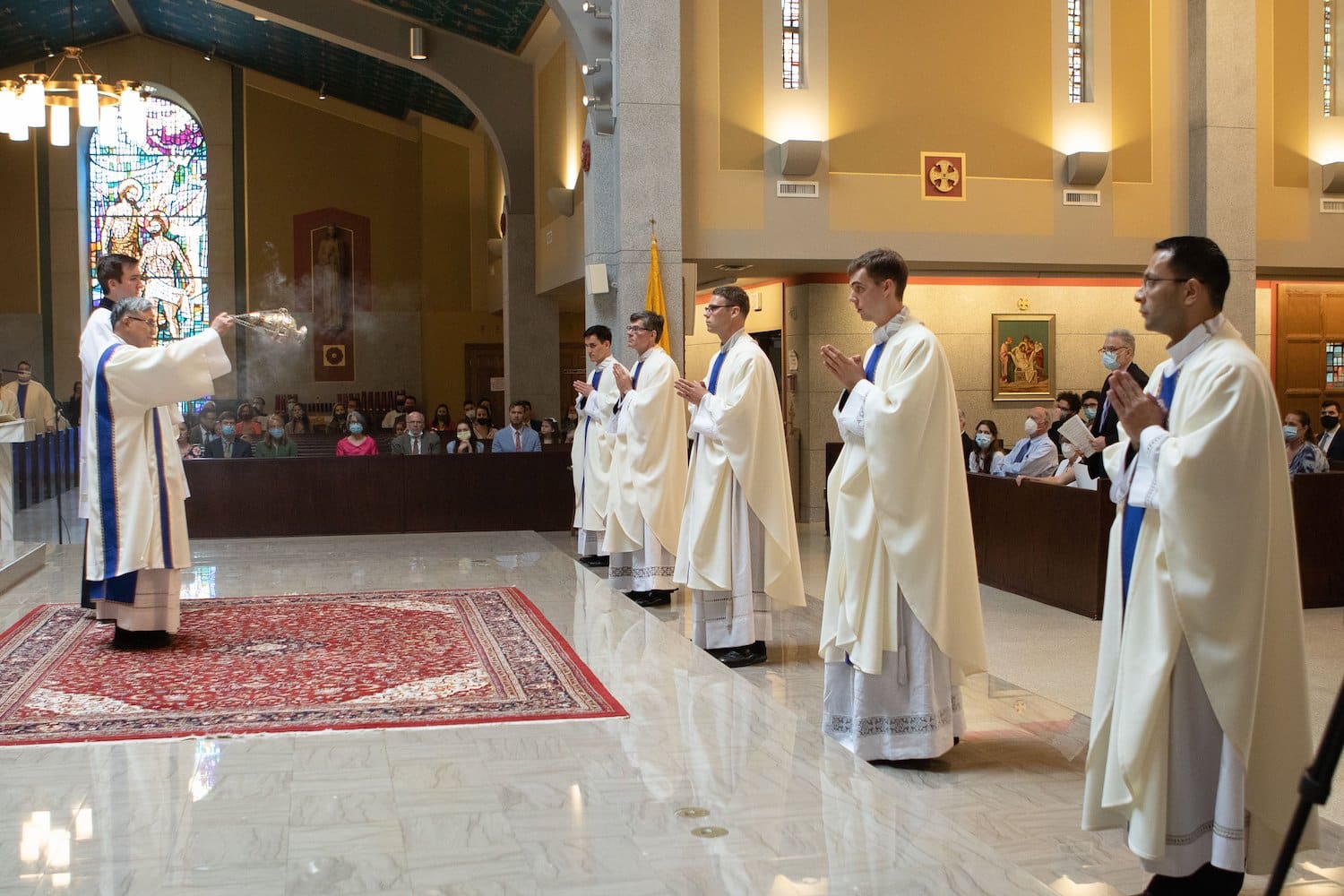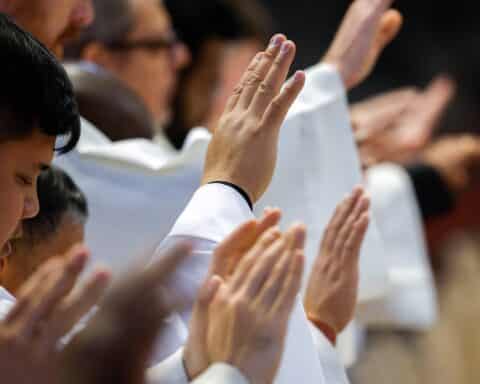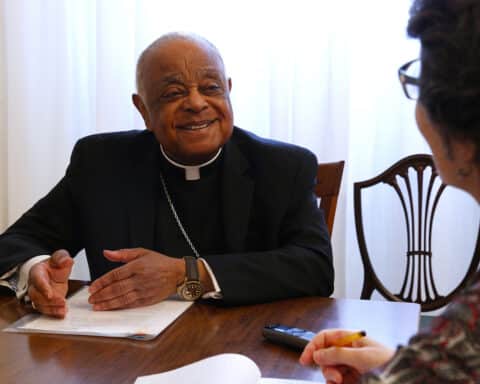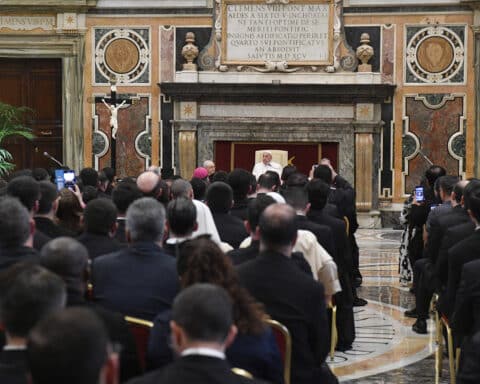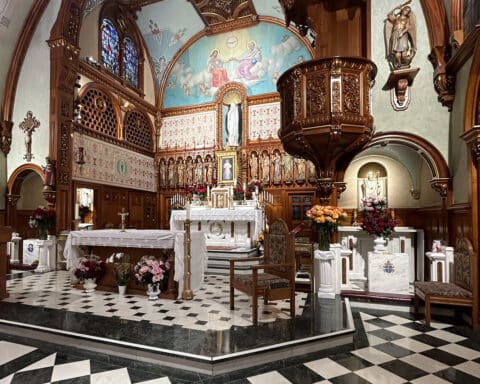When a priest is ordained, a special cloth is used to wipe the excess oil from his hands. That anointing is part of his consecration to his sacred duties, and it’s an extremely moving part of the Rite of Ordination. Following an old tradition, that cloth used to wipe his hands (called a “maniturgium”) is presented to his mother. According to pious accounts, she is to be buried with it, and when she dies, she can present it to St. Peter at heaven’s gate, where she will be swiftly admitted for having given her son to the Church.
A more recent custom is the tradition of a newly ordained priest giving his father a small stole, worn by the new priest as he hears his first confession. I presented the stole I wore as I heard my first confession to my father at a Mass of Thanksgiving at my home parish. I thanked my father — through my tears — for the example he set for me, always tempering justice with mercy. In a special way, I learned virtue from my father, whose example of upright and moral living gave me an extraordinary example of what it means to be a man of integrity.
I expected to feel most fatherly as a priest while celebrating Mass. But it turns out that, in my gradually accumulating years as a priest, I most feel like a father in the confessional. In the confessional, the priest directs and leads souls, encouraging and challenging them, like my father did me.
A young father
As a young priest, I first felt a bit silly when people wished me “happy Father’s Day.” I wasn’t a father. Not in the sense of what Father’s Day means. In fact, when they first called me “Father,” I felt even more strange. I was young when I was ordained (happily, I am still a young priest even now!). And even though I still think that celebrating a priest on Father’s Day is sort of strange, I have grown much more comfortable with being a father. More precisely, I am learning what it means to be a spiritual father.
I have learned that people don’t especially need their priest to be their friend. Young people in particular don’t need a college chaplain to be their pal. While priests ought to be affable and friendly, being a priest, being a spiritual father, means helping hold people to account and calling them to more.
Fathers make sacrifices
And for that to be effective, it means sacrificing for them. It means undertaking fasts and doing penance. It means being an example of prayer, particularly by loving the liturgy and working to organize reverent, noble Masses. And it also means finding plungers, emptying buckets set out to catch leaks, opening the church and the hall at inconvenient hours, heading to the hospital in the middle of the night and otherwise dying to oneself. Again and again and again.
In this is the heart of fatherhood: the laying down of one’s own life. A father forgoes what he wants, knowing the course that he has to pursue for those entrusted to his care. Whether a natural father or a spiritual father, if there’s no self-sacrifice, it’s not really fatherhood.
Which is why, perhaps above all, a father must be brave. It takes courage to swim upstream. It demands fortitude to look past the threats that may come and lead forward. A man must be brave to pursue, at perhaps great personal cost, what is right.
I still think it’s a bit strange to celebrate a priest on Father’s Day, but there is much that every spiritual father has in common with fathers who are raising families. This Father’s Day, we pray that our spiritual fathers, and our adoptive and biological fathers, would be brave and self-sacrificing — in a word, men of integrity.

